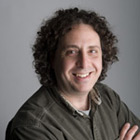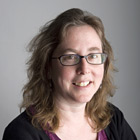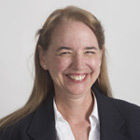Nashville, TN
March 31–April 3, 2016
Conference Website
Every year the National Science Teachers Association (NSTA) hosts a national conference on science education open to member and nonmember science educators. NSTA is committed “to promoting excellence and innovation in science teaching and learning for all.” This year’s conference theme is “Science: Empowering Performance.”
Thursday, March 31
 Strategies for Using NGSS-Focused Physical Science Assessment Tasks Formatively in Classrooms
Strategies for Using NGSS-Focused Physical Science Assessment Tasks Formatively in Classrooms
Kevin McElhaney (SRI International), Christopher Harris (SRI International), Deborah Peek-Brown (CREATE for STEM Institute, Michigan State University), Brian Gane (University of Illinois at Chicago), Daniel Damelin
8:00–9:00 AM, Omni Nashville Hotel, Broadway J
Explore classroom-based approaches for using NGSS-focused physical science assessment tasks to diagnose and support students’ progress toward meeting middle grades NGSS performance expectations.
 High-Adventure Science: Free Simulations Exploring Earth’s Systems and Sustainability
High-Adventure Science: Free Simulations Exploring Earth’s Systems and Sustainability
Amy Pallant, Stephanie Harmon (Rockcastle County High School, Mount Vernon, KY)
12:30–1:00 PM, Music City Center, 106A
Explore free, classroom-tested secondary school curriculum on climate change, freshwater sustainability, air pollution, land use, and hydraulic fracturing while exploring uncertainty as part of scientific argumentation.
 Accelerating Conceptual Understanding in K–5 Science Through Technology
Accelerating Conceptual Understanding in K–5 Science Through Technology
4:00–5:30 PM, Music City Center, 202B
Join Chad Dorsey, CEO of Concord Consortium, to learn how to improve student conceptual understanding through the visualization that technology can offer in elementary classrooms.
Friday, April 1
Modeling-Infused Instruction to Prepare Students for Physics, Chemistry, and Biology
Daniel Damelin, Mason Converse (Harper Creek High School, Battle Creek, MI)
8:00–9:00 AM, Omni Nashville Hotel, Cumberland 3
Join us to explore an innovative NGSS-focused curriculum that uses modeling of atomic interactions to tie together phenomena across physics, chemistry, and biology.
Using Systems Modeling to Facilitate Student Conceptual Development
9:30–10:30 AM, Omni Nashville Hotel, Cumberland 3
Learn about and use a new student-focused tool that supports students in constructing, testing, and revising dynamic system models to make sense of phenomena.
 Model My Watershed: Using Local Data to Make Local Decisions
Model My Watershed: Using Local Data to Make Local Decisions
Nanette Marcum-Dietrich (Millersville University), Melissa Hess (Conestoga Valley Middle School), Carolyn Staudt, Tara Muenz (Stroud Water Research Center)
9:30–10:30 AM, Music City Center, 106B
Find out about a free online application that uses national scientific databases and an online hydrological model to let users make accurate decisions about local watershed issues.
Teaching Environmental Sustainability with the Model My Watershed Application
Susan Gill (Stroud Water Research Center: Avondale, PA), Nanette Marcum-Dietrich (Millersville University), Carolyn Staudt, Tara Muenz (Stroud Water Research Center)
12:30–1:30 PM, Omni Nashville Hotel, Legends G
Model My Watershed is a web-based, interactive, GIS, hydrologic model that allows students and citizens to evaluate the impact of development in their watershed. Join us and explore this powerful tool that meets the NGSS.
Powerful Free Simulations for Three-Dimensional NGSS
5:00–6:00 PM, Omni Nashville Hotel, Music Row 2
Discover how free NSF-funded molecular simulations and curricula from the Concord Consortium can bring all three dimensions of the NGSS to your physics, physical science, and chemistry teaching, with a special emphasis on the science practices. Take away free tips and resources.
Saturday, April 2
Dragon Genetics and Other Powerful Free Simulations for Biology Teaching
8:00–9:00 AM, Omni Nashville Hotel, Cumberland 4
Add some fire to your genetics teaching with Geniverse, a game-based unit on dragons, genetics, and DNA. This research-based genetics curriculum from the Concord Consortium has been demonstrated to deepen students’ learning and engage them with all three dimensions of the NGSS. Receive free login and class account for Geniverse.
Sensing Science: Temperature and Heat Readiness for Early Elementary Students
Carolyn Staudt, George Forman (University of Massachusetts Amherst)
11:00 AM–12:00 PM, Music City Center, 104B
Participate in Sensing Science and uncover your children’s ability to reason with kinetic theory of matter using visualizations including models, probes, infrared technology, and stories.
 Free Online Software for Visualizing Data Across Multiple Disciplines
Free Online Software for Visualizing Data Across Multiple Disciplines
11:00 AM–12:00 PM, Omni Nashville Hotel, Legends C
Experience data visualization activities from multiple disciplines using free online software from the NSF-supported Common Online Data Analysis Platform (CODAP) project at Concord Consortium. Bring your own laptop!



